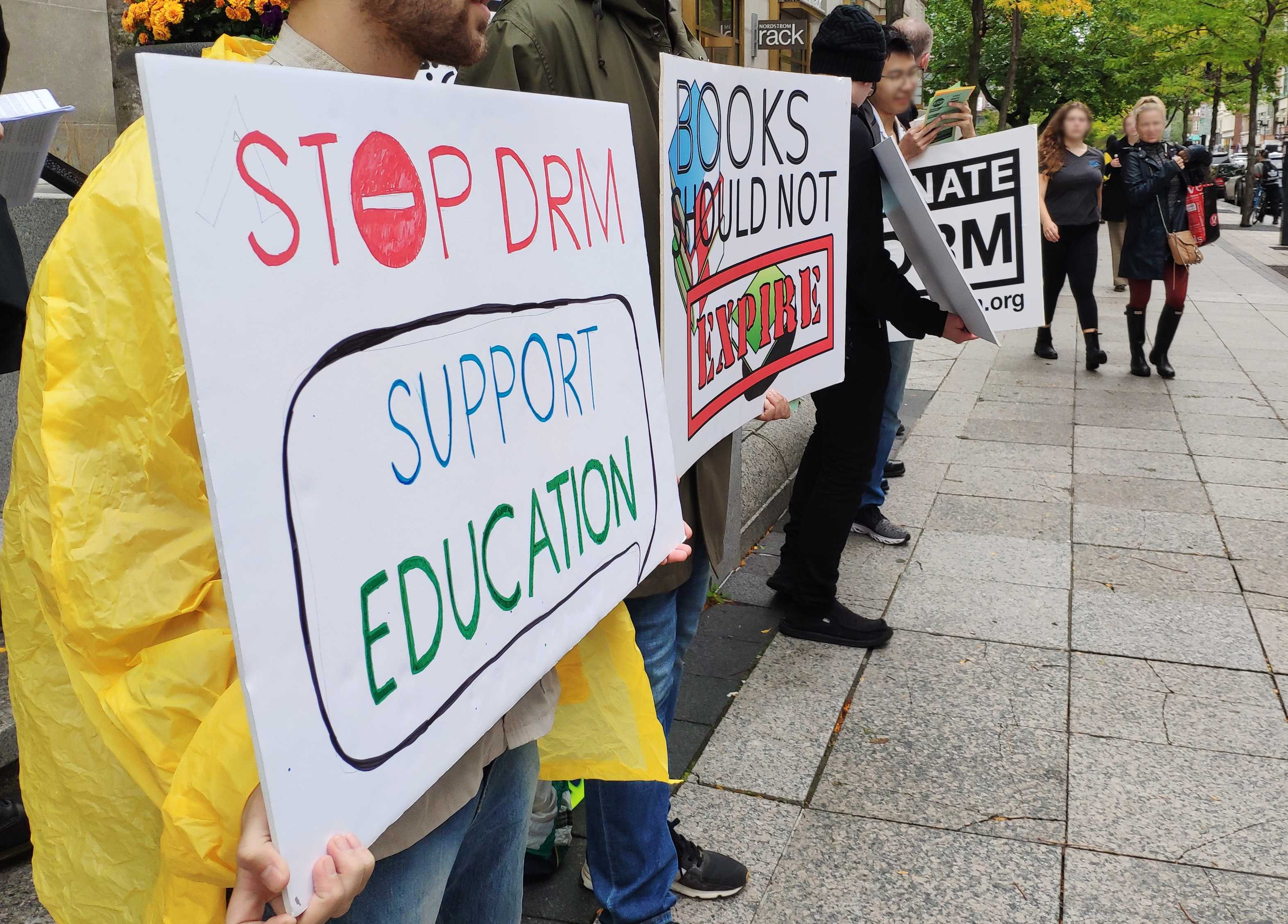Flying with SeaGL, blasting GNU Radio, and more from the Working Together for Free Software Fund
mardi 5 novembre 2019 à 15:08Free software is software that you can run, copy, distribute, study, change, and improve as you please. While these freedoms are rights that belong to the individual, they are also intrinsically linked to the concept of community and sharing. It's imperative that we be permitted to use, examine, and alter software as we choose, but we also demand the right to share our improvements with the wider community.
Working Together for Free Software is one of our initiatives that focuses on the broader world of free software: the community, programs, and funding that we’re coalescing to mount the crucial resistance to the abuses of proprietary software. This is a category that covers a lot of people and a lot of work, and the Working Together for Free Software Fund is just one piece of the picture.
This fund enables important, mission-aligned free software projects to utilize the FSF’s nonprofit infrastructure to enhance their fundraising and other capabilities, without the labor and costs of becoming a 501(c)(3) nonprofit on their own. This gives them access to the organizational strengths of the FSF, plus additional capacity and unique benefits.
While all of the projects under the umbrella of the Working Together for Free Software Fund are absolutely worthy of your attention and donations, today we're highlighting just a few projects with some noteworthy announcements. Want to know if your free software project qualifies? Learn more here!
GNU Guix
Guix (pronounced "geeks") promises users and developers three primary qualities: freedom, dependability, and hackability. You can use it either as a package manager compatible with your current GNU/Linux distribution, or you can use it as your distribution. People are happily using Guix for software development, bioinformatics, high-performance computing, research, and more. The Guix project also encompasses the creation of Guix System, which is on our list of endorsed free GNU/Linux distributions.
Thanks to the contributions of nearly 300 volunteers over seven years, version 1.0 of the GNU Guix package manager was released in May 2019. Also, Guix has been helping to lead the way on reproducible builds, which provide large advantages for both security and user freedom -- you can read more about this topic and see videos from LibrePlanet 2018 here. Read about some more of the ways that people are using and modifying Guix here!
Help Guix flourish and grow: donate here
GNU Radio
What can you do with radio in 2019? When the radio software is freedom-respecting, you can do whatever you like! GNU Radio is a free software development toolkit that provides signal processing blocks to implement software radios.
Occasionally, the innovations possible with this system make news: most recently, this June, researchers used GNU Radio to increase the usefulness of the RF tags on rehabilitated orangutans released back into the wild in Borneo. To create a heatmap of orangutan positions, researcher Dirk Gorissen used GNU radio to make a digital signal processing algorithm. You can read more about Gorissen’s research here.
GNU Radio developers and fans have met for several conferences this year: GNU Radio Days in June 2019, and GRCon in September 2019, in Huntsville, Alabama. GNU Radio will also be a big part of the Software Defined Radio devroom at FOSDEM this year, which is currently welcoming submissions.
Turn up the volume on GNU Radio: donate here
SeaGL
As the hometown of the dreaded Amazon and Microsoft, Seattle may not seem like the best free software town – but sometimes the best place to organize is right on the doorsteps of our opposition. Since 2013, the free software community has gathered for the Seattle GNU/Linux Conference (SeaGL), a grassroots technical conference dedicated to spreading awareness and knowledge about the GNU/Linux community, free software, and freedom-respecting hardware. FSF staff are frequent participants in the SeaGL festivities, including former campaigns manager Molly de Blanc and current chief technology officer Ruben Rodriguez.
This year’s conference is at Seattle Central College on November 15-16, 2019, and as usual, the FSF will have a table. Come talk about free software with us, learn how you can contribute to the FSF and the GNU Project, and buy some GNU gear! We also are making plans for an FSF meetup during the conference, so stay tuned.
Help SeaGL stay aloft: donate here
GNU Octave
GNU Octave is a scientific programming language with built-in plotting and visualization tools; it's intended as an ethical replacement for the commonly-used MATLAB, which is nonfree. John W. Eaton began work on Octave all the way back in 1988, and is still the primary maintainer; we interviewed him about Octave back in 2012.
The latest version, GNU Octave 5.1.0, was released in March of 2019, and improves compatibility with MATLAB, among other improved functions.
Help GNU Octave scale up: donate here
